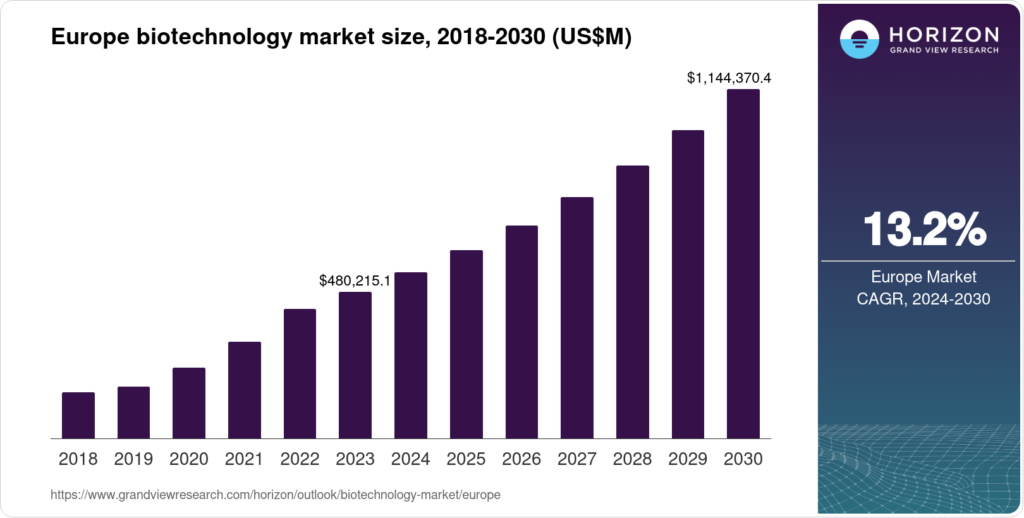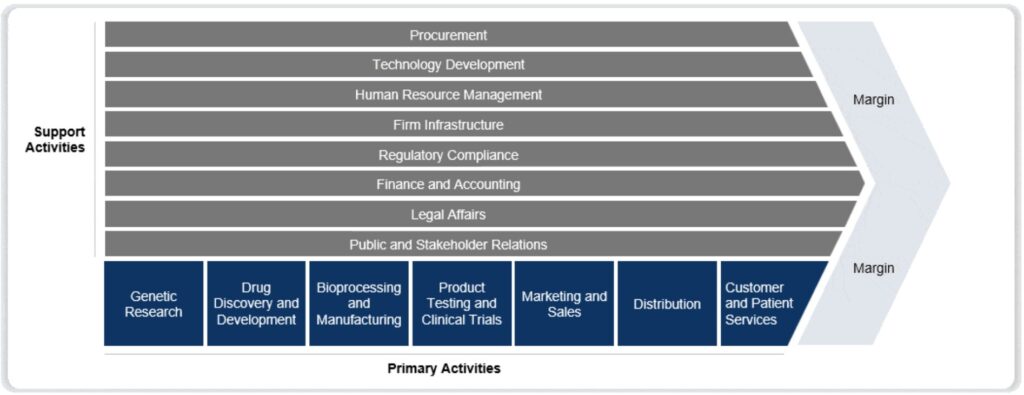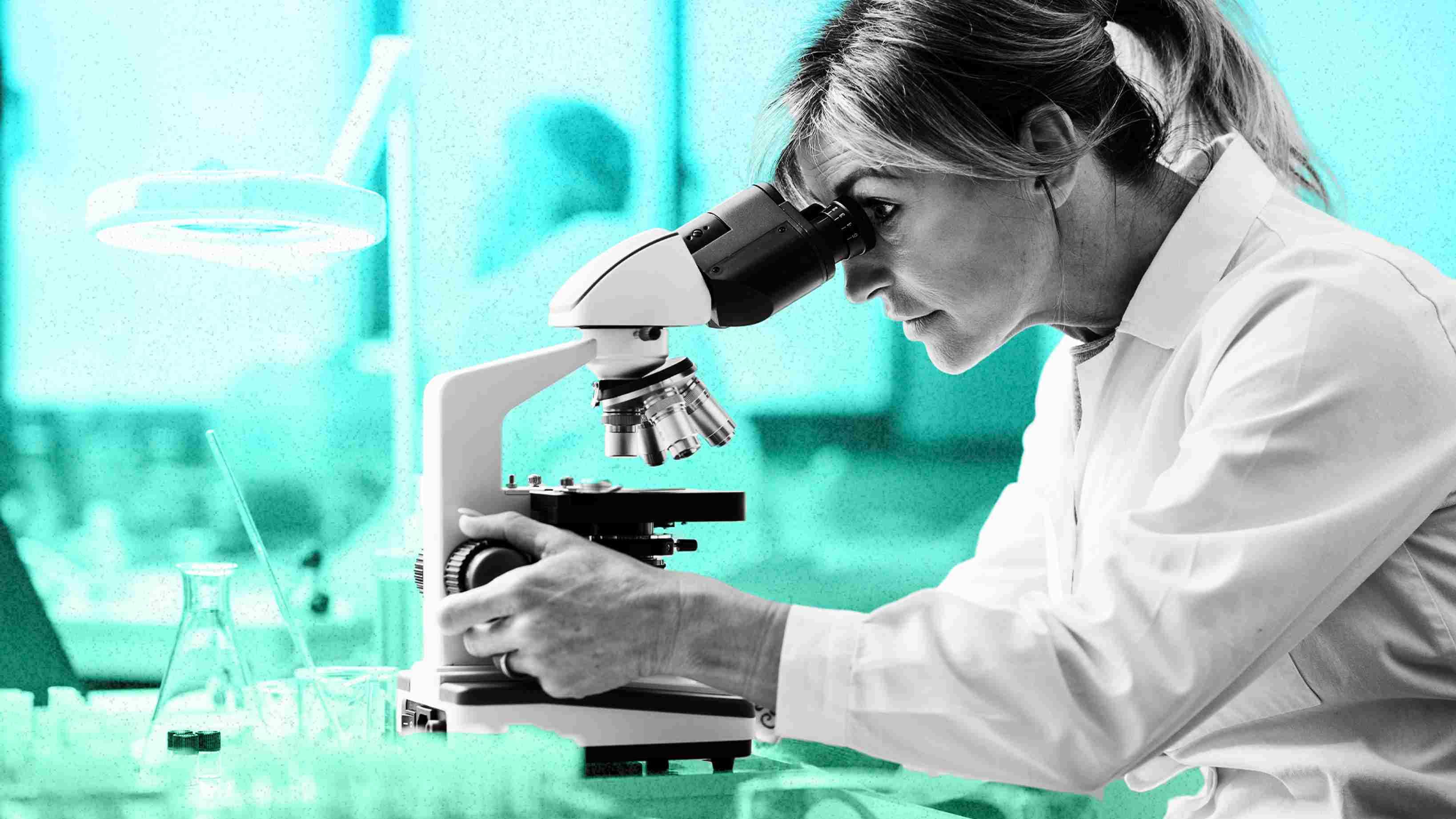In recent years, Europe has become a hub for groundbreaking biotechnology — a field where science and innovation join forces to improve our health, protect the environment, and boost food security. Whether it’s through smarter diagnostics, drought-resistant crops, or sustainable materials, biotechnology is already transforming everyday life.
Musumeci Online – The Podcast. It is perfect for driving, commuting, or waiting in line!
What Is Biotechnology and Why It Matters
Biotechnology is all about using living organisms and biological systems to develop products and solutions that benefit people and the planet. It combines biology with cutting-edge technology to create real-world innovations — from life-saving treatments to eco-friendly plastics.
Across Europe, biotech is a cornerstone of the broader life sciences industry and can be grouped into four main areas:
- Healthcare Biotechnology – The largest segment, focused on new medicines, vaccines, gene therapies, and diagnostic tools.
- Agricultural Biotechnology – Home to genetically modified crops, biofertilizers, and pest-resistant seeds, all working to feed a growing global population more sustainably.
- Industrial Biotechnology – Includes biofuels, bioplastics, and enzymes used in manufacturing, replacing fossil-based resources.
- Bioinformatics – This is where biology meets data science, helping researchers understand complex genetic data and personalize medicine.
Think of biotech as a bridge between nature and technology, helping us solve complex challenges with the power of life itself.
The Size of the Opportunity in 2024
In 2024, the European biotechnology market is expected to be worth a staggering €426.2 billion. To put that into perspective, it’s about the same as the annual GDP of countries like Norway or Austria. This growth is being driven by increased demand for innovative healthcare, sustainable farming practices, and cleaner manufacturing processes.
Here’s a simple breakdown of the biotech market by segment:
- Healthcare Biotechnology – 60% of the total market, worth around €255.7 billion. This includes advances in treating cancer, rare diseases, and fighting global outbreaks like COVID-19.
- Industrial Biotechnology – Roughly €85.2 billion, or 20% of the market. These technologies are replacing traditional oil-based chemicals with cleaner, nature-inspired alternatives.
- Agricultural & Environmental Biotechnology – With €63.9 billion (15%), this segment is helping to create more resilient crops and clean up polluted environments.
- Bioinformatics – Although smaller at €21.3 billion (5%), it’s one of the fastest-growing areas, powering breakthroughs in genomics and personalized healthcare.
Together, these sectors show how biotechnology is not only big — it’s also diverse and essential.
Whether you’re a healthcare professional, a student, or just someone curious about how technology can make the world a better place, biotech offers a glimpse into a healthier, more sustainable future.
A Fast-Growing Industry
Between 2020 and 2024, the biotech market in Europe has grown by over 50%, thanks to strong investments in research and innovation. Government support and increased global demand have also played a big role.
Here’s a quick look at the growth:
| Year | Market Size (€ Billion) | Growth Rate | Export Volume (€ Billion) |
|---|---|---|---|
| 2020 | 280.1 | 9.5% | 92.3 |
| 2021 | 307.5 | 9.8% | 105.6 |
| 2022 | 337.8 | 9.9% | 121.4 |
| 2023 | 371.6 | 10.0% | 139.7 |
| 2024 | 426.2 | 11.8% | 160.0 |
To visualize this: the biotech market grew in value like a healthy tree gaining new branches every year — and its exports alone are now worth more than the entire coffee industry worldwide.

Who’s Leading the Innovation?
Europe’s biotech sector is filled with both industry giants and niche players. Here are a few of the companies making headlines:
- Novozymes – A leader in industrial enzymes, making eco-friendly products used in everything from detergents to fuel.
- Roche Diagnostics – At the forefront of medical diagnostics, helping doctors catch diseases earlier and more accurately.
- BASF SE – Innovating in agriculture and sustainable chemicals.
- Bayer AG – Well-known in both medicine and crop science.
- Lonza Group – Specializes in manufacturing biotech solutions for the pharmaceutical industry.
These companies are investing heavily in research and often collaborate with startups and universities to push the boundaries of what’s possible.
A Web of Support: The Ecosystem Behind Biotech
Behind every biotech breakthrough is a network of supporters:
- European Commission – Provides funding through Horizon Europe and sets regulations.
- EuropaBio – Represents the biotech industry’s voice in policymaking.
- Universities and Research Centers – Where much of the early-stage innovation begins.
- Venture Capital Firms – Back startups with bold ideas and big potential.
This collaborative spirit is a key reason Europe has become a biotech powerhouse.
From the Lab to Real Life: The Biotech Value Chain
Every biotech product goes through a journey — from lab bench to life-changing solution. Here’s how it happens:
- Research & Development – Using tools like CRISPR gene editing and genomic sequencing to discover new treatments or technologies.
- Production – Often through advanced methods like fermentation or cell culture.
- Distribution – Getting these products into the hands of doctors, farmers, and manufacturers around the world.

Supporting these stages are policy advisors, suppliers, and tech partners who help navigate challenges and speed up delivery.
Who Benefits from Biotechnology?
Biotech touches many sectors — and many lives. Here are a few examples:
- Hospitals and Clinics – Seeking faster diagnoses and better treatments.
- Farmers and Agribusinesses – Looking for higher crop yields and fewer chemicals.
- Manufacturers – Switching to greener, more sustainable materials.
Let’s take one possible “buyer persona”:
Meet Dr. Anna Müller, R&D Director at a pharmaceutical firm. Her mission is to cut drug development time while keeping costs down. Her biggest headache? Strict EU regulations and the high price of innovation. What she needs is funding support and agile partnerships with biotech firms that can deliver fresh ideas.
A Future Powered by Biology
Biotechnology is not science fiction — it’s science in action. Whether you’re a healthcare professional, a student, or just someone curious about how technology can make the world a better place, biotech offers a glimpse into a healthier, more sustainable future.
As we continue to face global challenges, from pandemics to climate change, biotechnology will be at the heart of the solutions. And Europe, with its rich ecosystem of innovators, researchers, and entrepreneurs, is leading the way.
REFERENCES
- EuropaBio (2025). Measuring the Economic Footprint of the Biotechnology Industry in the European Union. Retrieved from https://www.europabio.org.
- PNO Consultants (2017). A Roadmap to a Thriving Industrial Biotechnology Sector in Europe. Retrieved from https://www.pnoconsultants.com.
- Custom Market Insights (2025). Europe Biotechnology Market Size & Forecast. Retrieved from https://www.custommarketinsights.com.


Leave a Reply